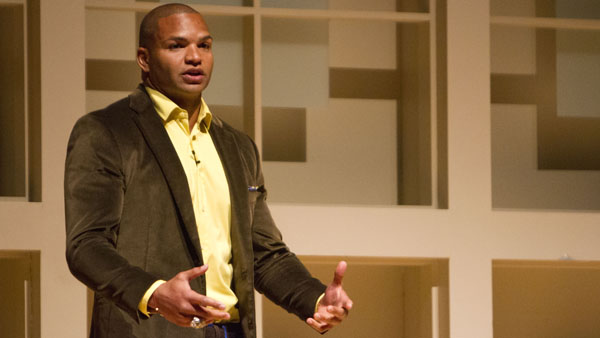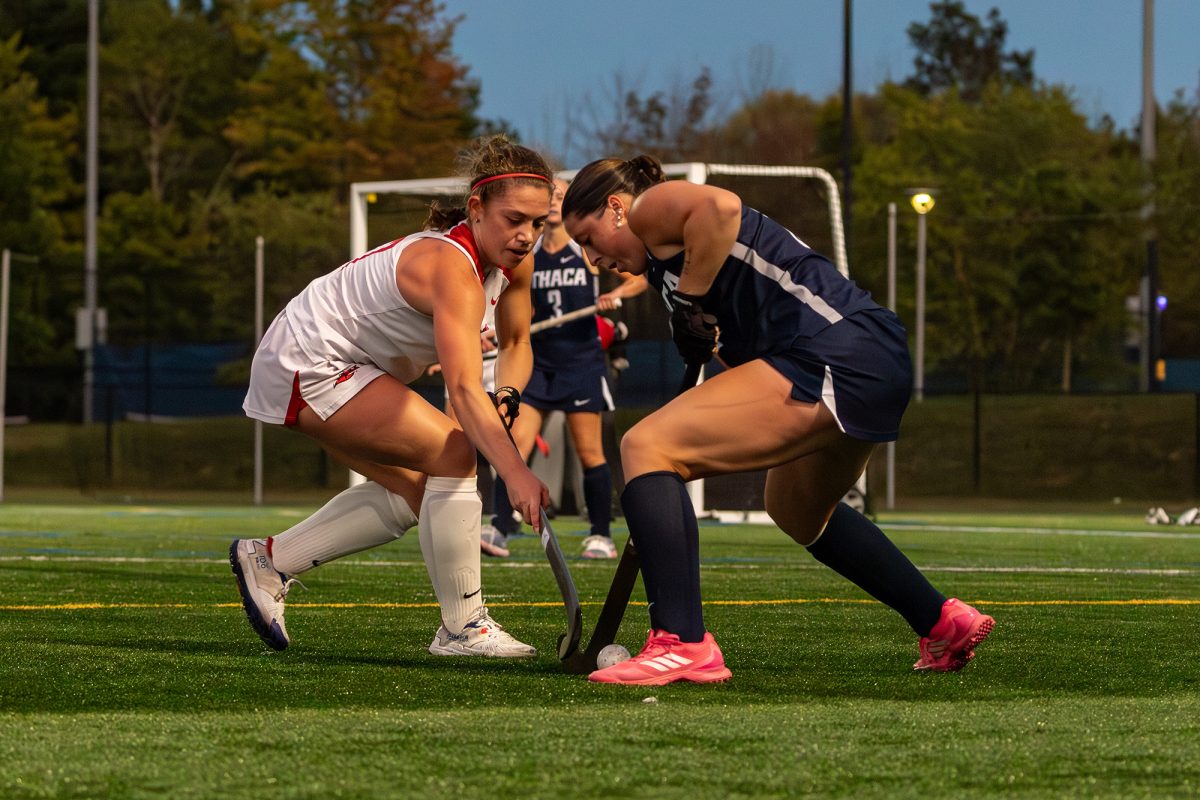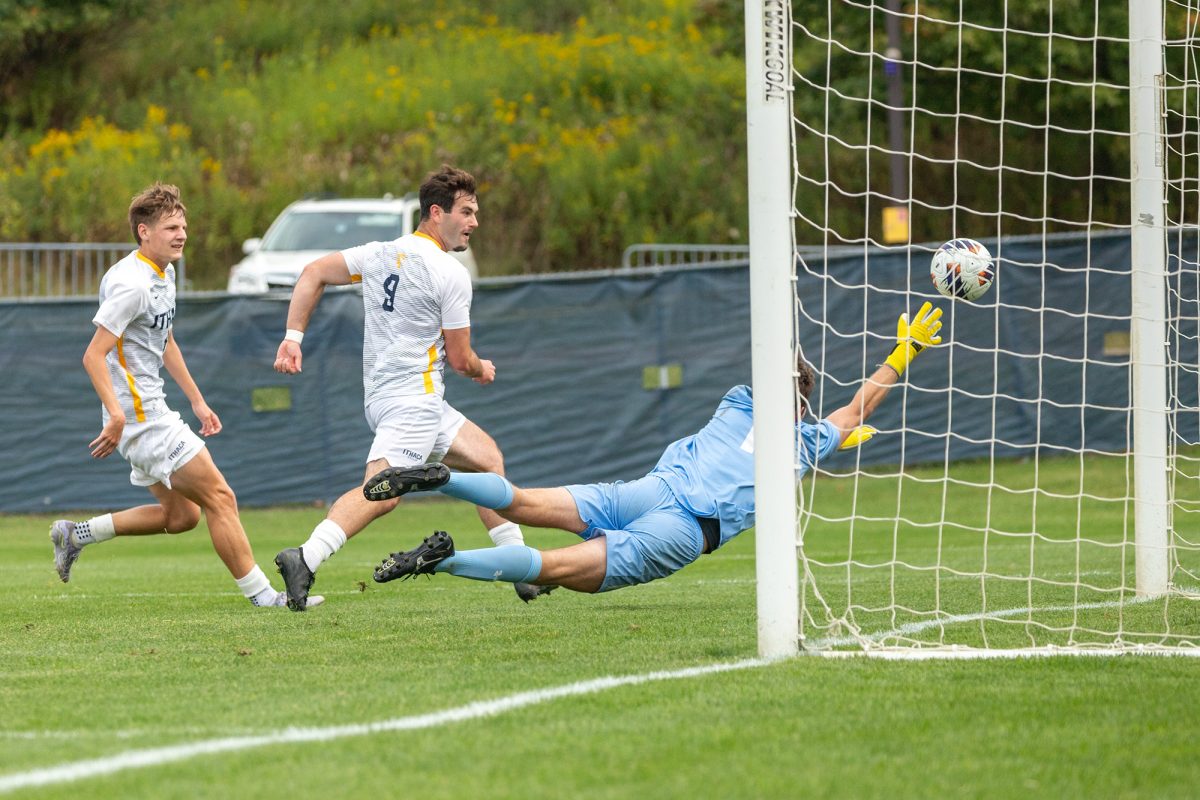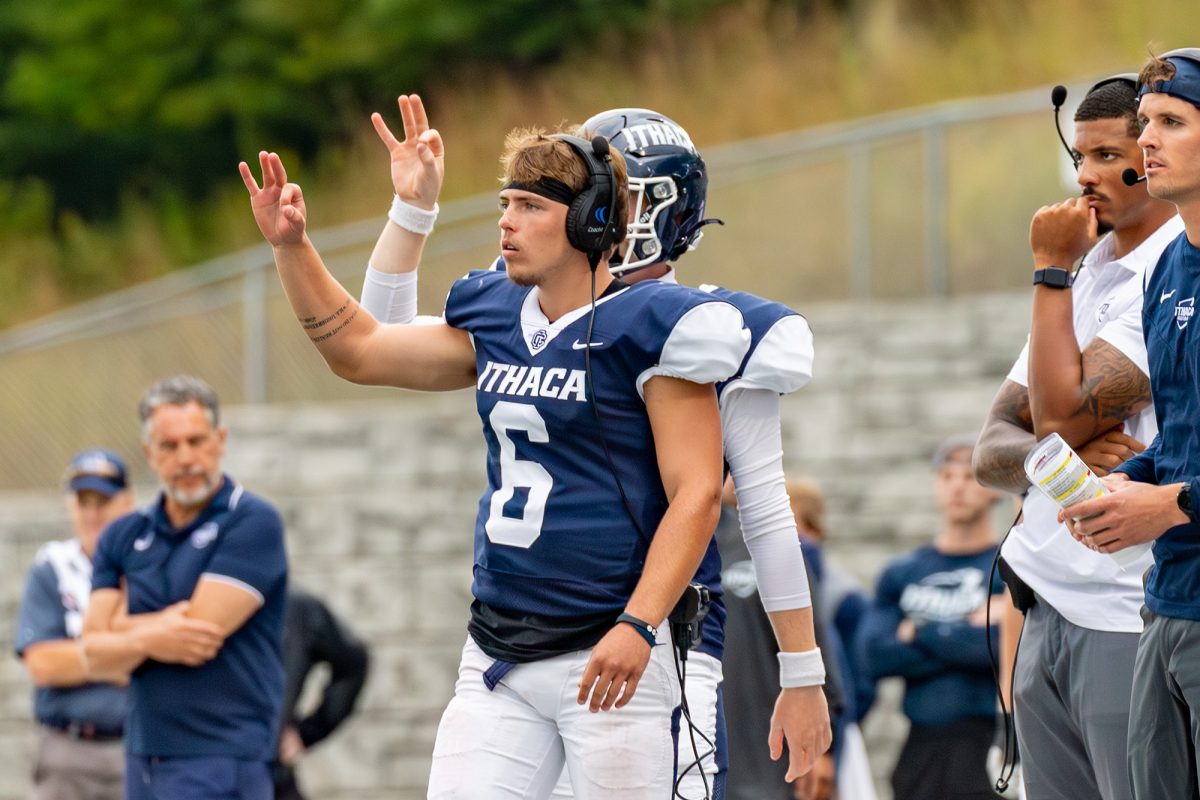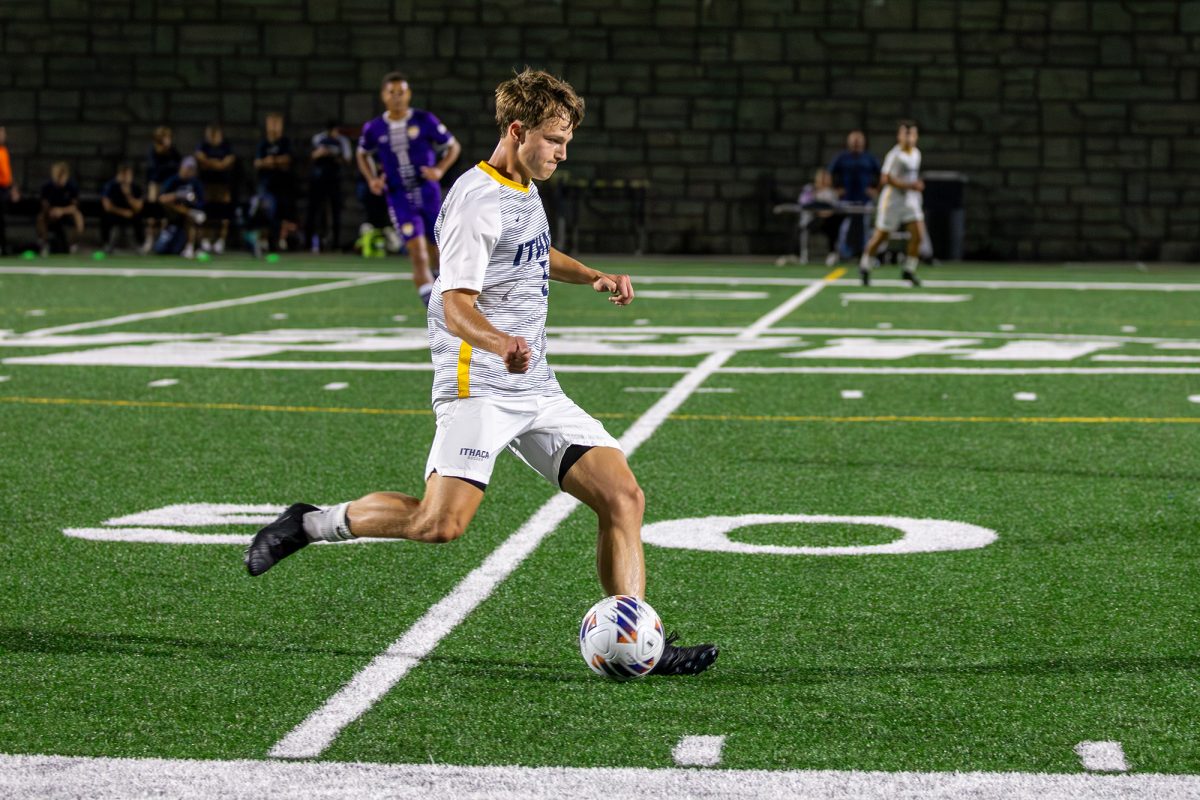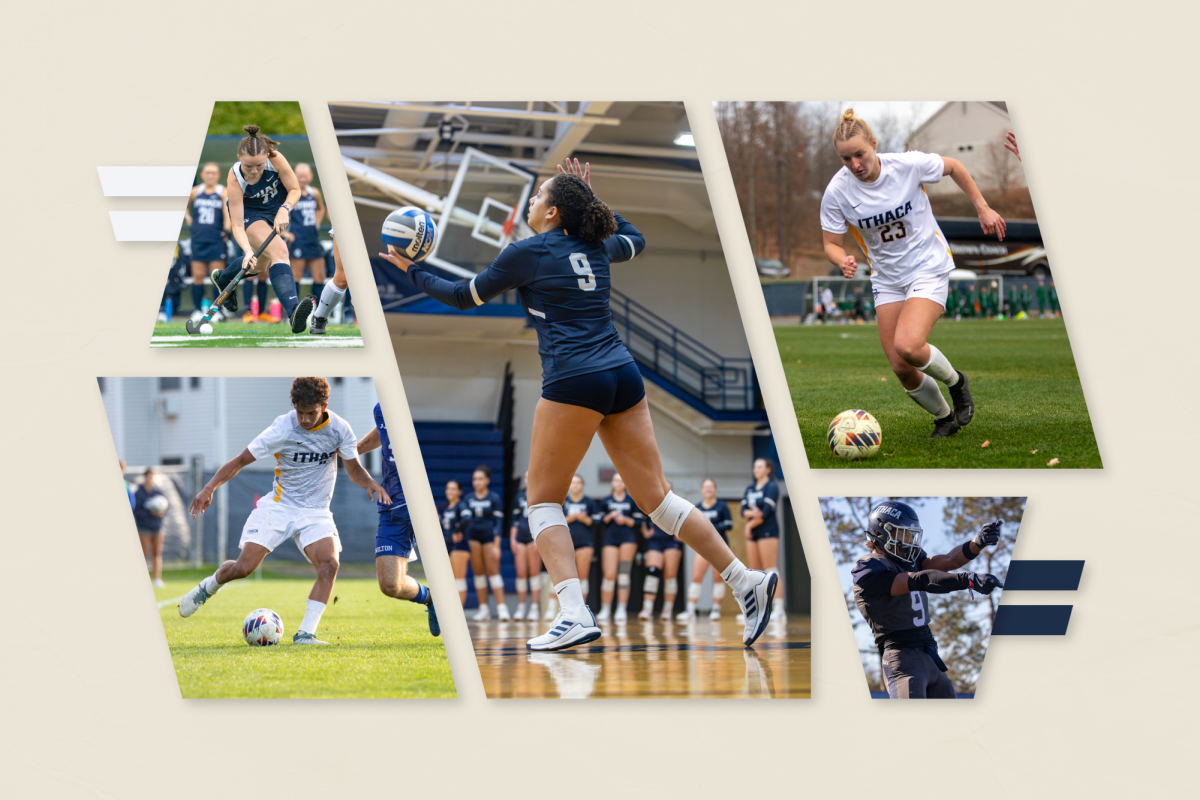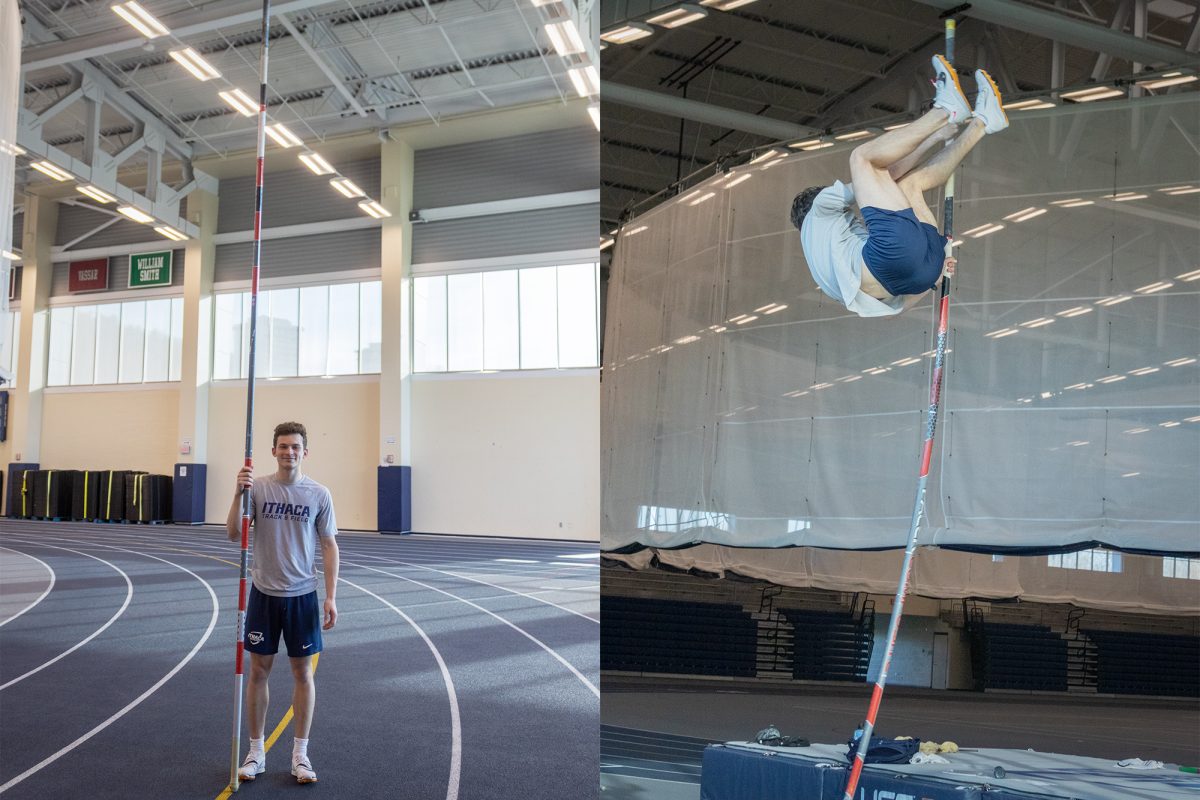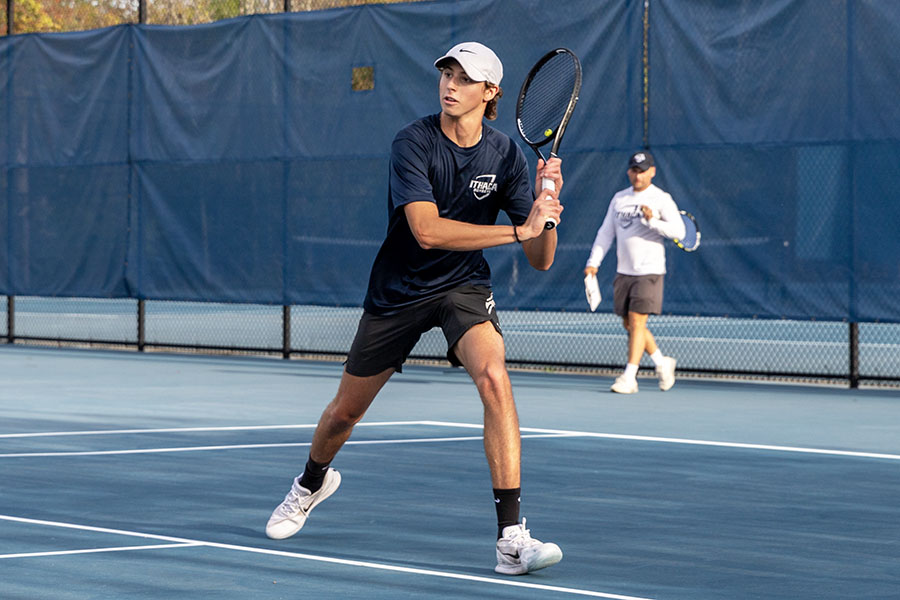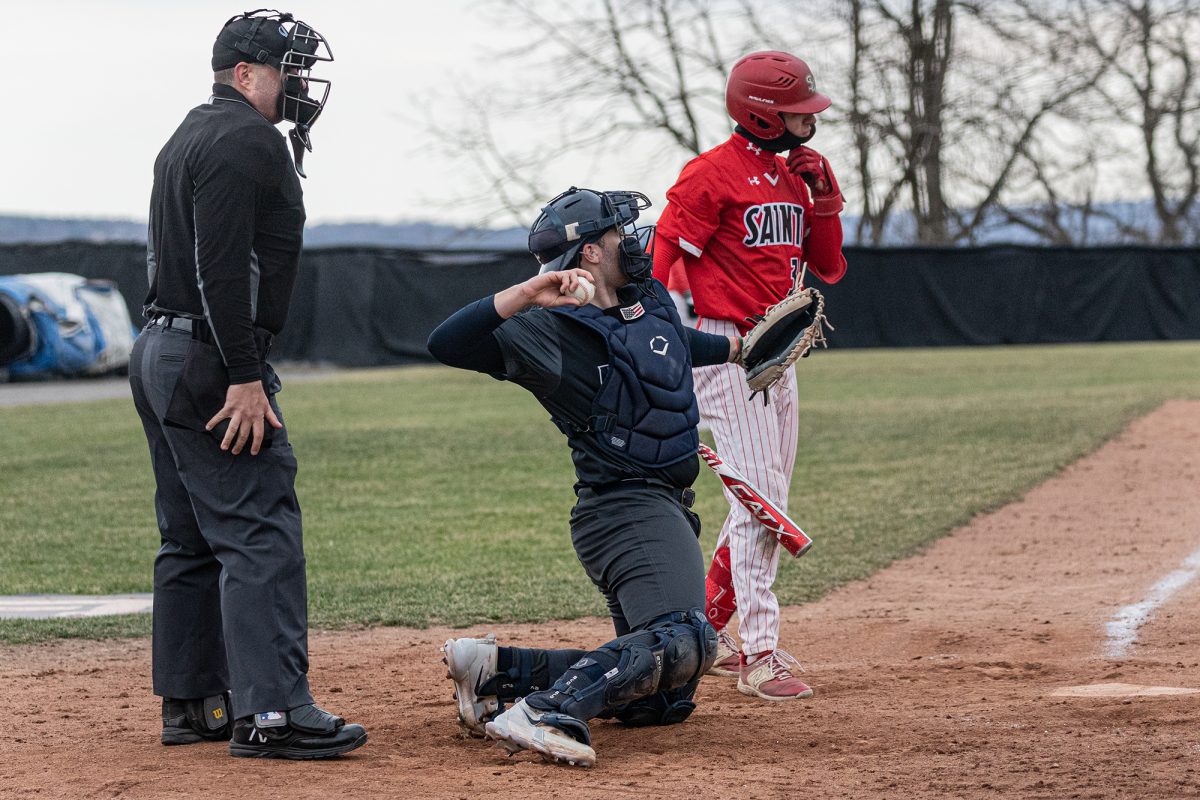Brendon Ayanbadejo, a former NFL linebacker for the Baltimore Ravens and Miami Dolphins, said he has developed a life mission during his playing career to make sure sexual orientation never stops people from playing football or any other sport. Though he does not identify as an LGBTQ individual, but rather as an ally, Ayanbadejo began his advocacy for equality in 2009 when Maryland struck down the legalization of gay marriage.
Cornell University junior Atticus DeProspo is the president and founder of the university’s chapter of Athlete Ally, a group that promotes equal rights for all sexual orientations in sports. DeProspo, who was featured on MTV’s “True Life” for coming out as a gay varsity soccer player for the Big Red, invited Ayanbadejo to speak at Cornell via Facebook. Ayanbadejo said he was moved by DeProspo’s story and agreed to speak.
Ayanbadejo spoke for 45 minutes and took questions from the audience March 19 at Cornell’s Statler Hall. He said his message was to support all athletes regardless of their sexual orientation, and his goal was to influence media to stop making stories out of LGBTQ athletes’ sexual orientations rather than their skill.
Sports Editor Steve Derderian spoke with Ayanbadejo after his presentation to discuss being outspoken about LGBTQ rights in the NFL, changing the public conversation about the LGBTQ community and what he aims to accomplish in the future as his professional career winds down.
Steve Derderian: What brought you to speak at Cornell University?
Brendon Ayanbadejo: I didn’t know much about Cornell before, and I’ve learned so much since I got here. I played against a friend, [NFL lineman] Kevin Boothe, and he went to Cornell, and we did our MBAs together at George Washington University. When I saw Atticus’ name attached to Cornell, I linked it back to my buddy Boothe, and it made it easier. Atticus told me his story, and I was really moved because he wants to make Cornell better.
SD: You’ve visited UCLA and other campuses like Cornell, where many tend to agree with your message of equality. Do you ever feel like your message of “you can play” is preaching to the choir at some point?
BA: At least half the crowd are the usual suspects and the other half are usually the people who want to become allies and find out ways they could support the LGBTQ community and to hold up a sign without having to be political toward the cause. It’s as simple as going on social media to share the message or just making sure people are more mindful of the language used toward the LGBTQ community. There’s a lot of people who want to do more and they don’t know how, and you can show them it’s as easy as tapping a message on your phone.
SD: Where else would you like to share your message?
BA: I’m just here to drop a seed in people’s heads. Politicians and religious groups are two of the biggest places in the country where this is a serious issue. A lot of religious groups don’t support equality and view homosexuality as a sin when, in fact, homosexuality is natural. It’s getting better. When I go to Washington, D.C., I see all-inclusive churches and pastors and chaplains more willing to marry LGBTQ families. We’re starting to see change, and it’s a beautiful thing because religion teaches love and politicians should do the right thing.
SD: Are equal rights for the LGBTQ community rarely discussed in the NFL because there aren’t as many franchise players or well-known superstars willing to support the cause?
BA: I think everybody has their passion. Some players want to feed the poor or build homes for others. Mine is with equality, while others are with something of their own interest. They’re all equal and noble causes, but mine just happens to be a little outside the box of the philanthropic way the NFL is used to.
SD: Did you find that NFL locker rooms and management were different depending on where you played?
BA: It’s absolutely different. One thing that was amazing about the Ravens was that they looked at their players as customers and employees, and they made us feel safe in the workplace. I had never been in a workplace like that before, and head coach John Harbaugh wanted to get the most out of his team, and he wants everybody to be comfortable and express themselves.
SD: When it comes to equality in sports, does it take time or education for people to understand the message you try to share?
BA: There’s a myriad of things that lead to actual change. We’ve seen that with NFL over the course of the last few years that we’ve gradually had talks about inclusivity over the years and having gay players in the league. We’ve even seen players come out after they retire. This is something we’ve been anticipating over time, but it takes time and the right place to push us closer toward equality.


